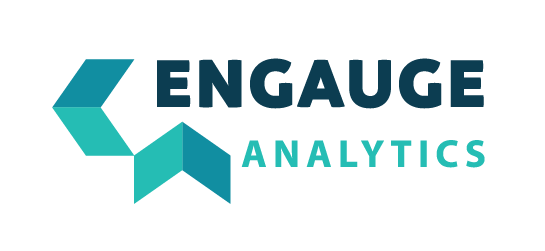One of the mostly fun (but sometimes painful, if I can be honest) things about running Engauge is seeing the live Engauge stats. It's fun watching visitors from all over the world visit the site, read the content, and find value in what we're producing here.
It got me thinking: When a customer lands on your site for the first time, they’re coming to you with questions. These are questions they may not even realize they’re looking to answer. But ultimately, as consumers, we’re all looking for subconscious clues that the site we’re on, no matter what it is, is going to help us, leave us with a positive experience, and build trust.
Here are some of the basic questions that your website should answer:
1. Are You There?
This may seem like a no-brainer, but it's important. If people can't find you online, you don't exist. A website brings a legitimacy to a business, and truly acts as your front door. Along with your social media presence (keep reading), this is one of the most important indicators that you exist in the real world. And people are looking for you.
2. Are You Still Active?
Have you ever driven past a creepy, old house? You know, one with the dilapidated door, the crumbling facade? Someone walks out of the house, and you internally scream, "Someone lives there?!?"
A website that is out of date is the creepy house on the corner. Most folks are scared to visit, and even more scared to enter. It breaks trust almost instantly, and gets people asking, "Oh, is this business still actually in business?" So getting your website up to date is crucial.
3. Are You on Social Media?
If your website is your front door, your social media is your front porch. People will visit there to see what is going on, hear news, see your most recent activity, and even begin the sales process. Having active social media accounts, especially Facebook, Instagram, and Google My Business, are crucial to invite people into the conversation and sales process.
4. What Are You About?
Does your website show your personality? Does it tell people what you value? What about your history or proof of work?
Visitors to your site are looking to build trust, and having an openness about who you are is a great way to help establish that trust! Let people know where you came from, who you are, what you stand for. An About page, with some history, values, or team members, is an easy way to make this happen.
5. Do My Friends Care About You?
This is where the social proof comes in. Social proof is the positive influence created when a person finds out that others are doing something.. More than the peer pressure your family warned you bout ("If all your friends jumped off a bridge, would you?"), social proof shows people that what you are doing is contributing to the lives and businesses of others.
Testimonials and reviews go a long way! Allowing others to tell the story of how you helped them leads to building the trust that leads to sales.
6. How Do I Pay You For X?
You want to make money helping those coming from your site. And, when they have enough trust and believe you have the answer to their problem, they will want to pay you. Making sure you have an easy way to do that is going to be crucial for business!
7. If I'm Not Ready To Buy, How Can I Keep In Touch?
But, most people who come to your site won't want to buy from you at first. It takes time, decisions must be made, they'll want to see if you really have what it takes.
Clear calls-to-action (CTAs) that provide an opportunity to stay in touch, via a newsletter, blog subscription, follow up call, help continue the conversation and move your visitors through your sales funnel.
If you're feeling lost in all of this, our partners at tripleNERDscore can point you in the right direction!
